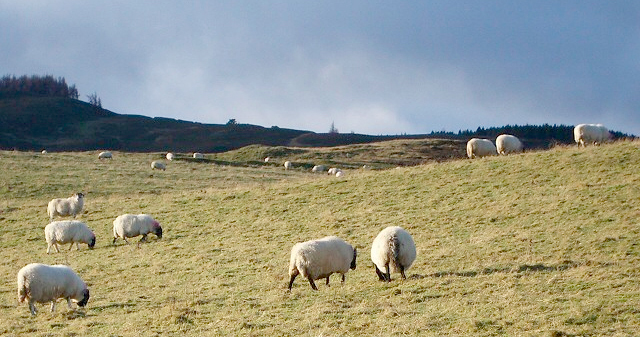
Payments made under Scotland's new Upland Sheep Support Scheme 'remain at the back of the queue' and are an ongoing failure, according to NFU Scotland.
The new scheme is designed to assist active hill farmers and crofters though a payment coupled to the number of ewe hoggs they keep.
But NFU Scotland said the payments remain at the back of the queue since the Scottish government is sorting out the debacle surrounding delayed support payments and flawed IT systems.
As things stand, no payments under SUSSS, which is worth around £6 million to the hill sheep sector, have been made.
A timetable for payments has yet to be given and confirmation of the likely payment rate per ewe hogg has not been made.
Vital improvements
However, NFUS believes vital improvements to the scheme can be made and a window of opportunity exists for Scottish Government to have changes approved by Europe that will fine tune SUSSS in time for the 2017 scheme year.
Included in the list of changes sought by the Union are a wider application period; a new retention period and the number of ewe hoggs claimed being limited to no more than 25 percent of the breeding flock that there are due to enter.
Writing to Scottish Government, NFU Scotland’s Director of Policy Jonnie Hall said: "Directing precious CAP funding at those actively farming remains a key priority for Scotland.
"SUSSS was specifically designed to assist those keeping hill sheep in some of Scotland’s most extensive and remote parts through making payments on the ewe hoggs being kept as the next generation of their flocks.
"However, with payments yet to be made from this vital £6 million pot, there is no clear understanding of the financial and activity benefits of SUSSS.
"Therefore, NFU Scotland is not seeking to amend the budget or payment rate components of the scheme.
"Instead, we want to make it more effective and better aligned to the interests of the hill farmers and crofters it is intended to support.
"Although having still to complete its first year, and an expectation that claims to the scheme will likely mean a reduction in the estimated payment rate of €100 per ewe hogg, we believe there are strong arguments to amend SUSSS to make it more practical and effective for those sheepkeepers reliant on Region 3 land.
"From the outset, many applicants to the Scheme have had significant misgivings about the application and retention periods.
"The application period is evidently too short, with some not able to access hill ground until after the close of the application period (16 October) due to the terms of their lease.
And many simply cannot fully gather all their eligible animals in such a narrow time frame.
Application period be altered
"As a result, we are proposing that the application period for SUSSS be altered from the existing window of 1 September to 16 October to a new application period of 1 October until 31 December.
"The 31 December deadline for the application period would then signal the start of a new retention period of 1 January to 31 March.
"NFU Scotland believes that these changes would meet the requirements of the inspection regime, and would give those farmers and crofters dependent on the scheme the best opportunity to access this support specifically targeted at them.
"In addition to the current requirement to have a minimum of four hectares of Region 3 land per ewe hogg claimed, a further control is required to help prevent overclaiming by those with an excess of ewe hoggs over and above the numbers they required to maintain their breeding flock.
"The union is proposing that the number of eligible ewe hoggs that can be claimed should be no more than 25 per cent of the ewes and gimmers of the regular breeding flock that the ewe hoggs are due to enter.
"This can be verified through the annual sheep inventory which all sheep keepers are obliged to complete every December."
